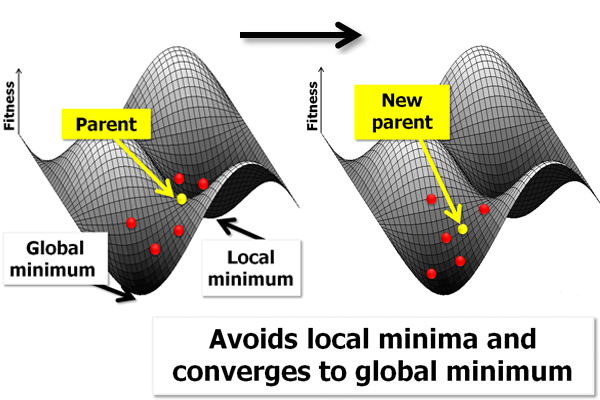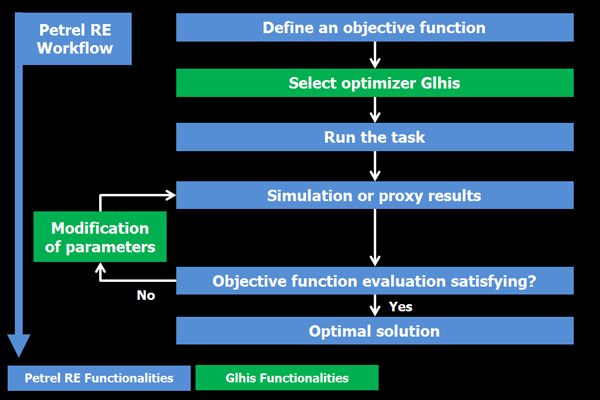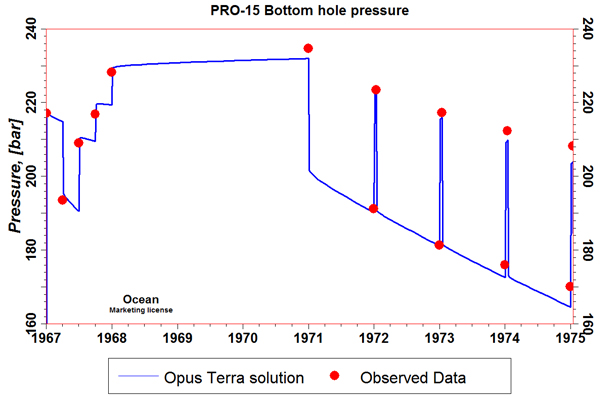|
Global History Matching
Overview:
Glhis is a powerful and flexible tool to optimize many reservoir engineer problems.
The optimizer is a global optimization method: CMA-ES (Covariance Matrix Adaptation
– Evolution Strategy). The algorithm used is known as one of the most efficient
for strongly nonlinear problems and as one of the best metaheuristics for continuous
problems. Glhis can be used for many workflows: Well Placement Optimization, Field
Development Scheduling, History Matching with Multiple Models, Global Optimization
of Oil Production Systems, Screening and Designing Improved Oil Recovery Methods.
Useful links:
Features:
Glhis allows bypassing time consuming reservoir simulations, only one optimization
performed by Glhis is necessary when a local optimization method requires several
optimizations to obtain an acceptable solution. Since the Reservoir Engineering
procedures require a large number of reservoir simulation runs which can result
in a large computational effort, Glhis can be used with different proxies (cf. Sirenn)
to accelerate the optimization. Global optimization methods are the best suited
approach as they are very well adapted to resolve nonlinear phenomena.
|
This algorithm is an efficient evolutionary strategy that has been tested successfully
on large number of functions with many local minima. The algorithm explores efficently
the parameters space, while avoiding convergence to a local minimum.
|
|

|
|
|
The Glhis plug-in aims to improve History Matching workflows using a global optimization
method to identify the best solution. For example, this toolbox allows to history
match all production data (Pressure, water-cut …) or maximize the production (wells
placement, production rates …)
|
|

|
|
|
This example illustrates the powerful of Glhis. The different solutions fit the
observed data (Pressure, Water-cut and Gas-oil ratio).
|
|

|
|
|



